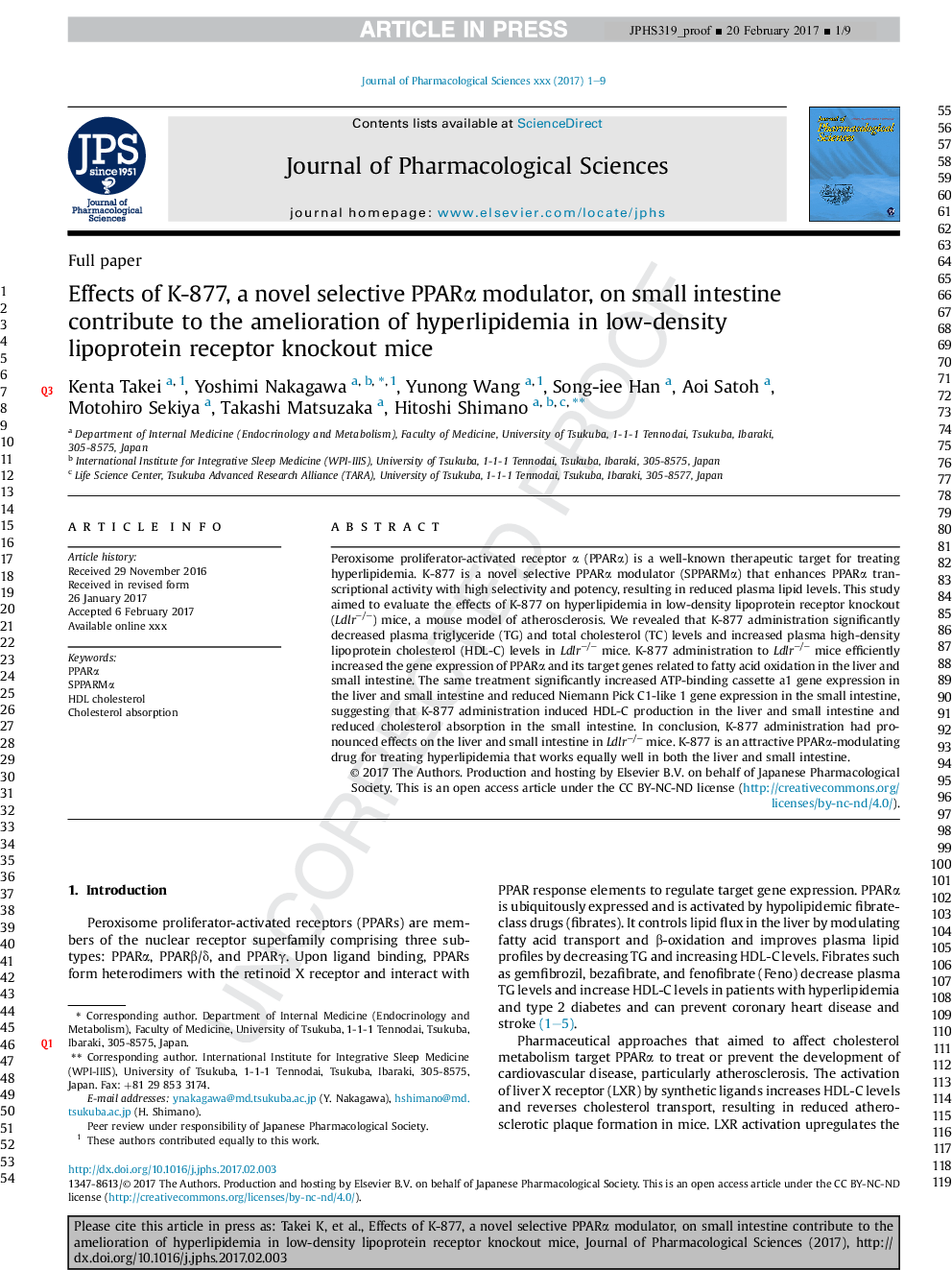| Article ID | Journal | Published Year | Pages | File Type |
|---|---|---|---|---|
| 8533235 | Journal of Pharmacological Sciences | 2017 | 9 Pages |
Abstract
Peroxisome proliferator-activated receptor α (PPARα) is a well-known therapeutic target for treating hyperlipidemia. K-877 is a novel selective PPARα modulator (SPPARMα) that enhances PPARα transcriptional activity with high selectivity and potency, resulting in reduced plasma lipid levels. This study aimed to evaluate the effects of K-877 on hyperlipidemia in low-density lipoprotein receptor knockout (Ldlrâ/â) mice, a mouse model of atherosclerosis. We revealed that K-877 administration significantly decreased plasma triglyceride (TG) and total cholesterol (TC) levels and increased plasma high-density lipoprotein cholesterol (HDL-C) levels in Ldlrâ/â mice. K-877 administration to Ldlrâ/â mice efficiently increased the gene expression of PPARα and its target genes related to fatty acid oxidation in the liver and small intestine. The same treatment significantly increased ATP-binding cassette a1 gene expression in the liver and small intestine and reduced Niemann Pick C1-like 1 gene expression in the small intestine, suggesting that K-877 administration induced HDL-C production in the liver and small intestine and reduced cholesterol absorption in the small intestine. In conclusion, K-877 administration had pronounced effects on the liver and small intestine in Ldlrâ/â mice. K-877 is an attractive PPARα-modulating drug for treating hyperlipidemia that works equally well in both the liver and small intestine.
Related Topics
Health Sciences
Pharmacology, Toxicology and Pharmaceutical Science
Pharmacology
Authors
Kenta Takei, Yoshimi Nakagawa, Yunong Wang, Song-iee Han, Aoi Satoh, Motohiro Sekiya, Takashi Matsuzaka, Hitoshi Shimano,
